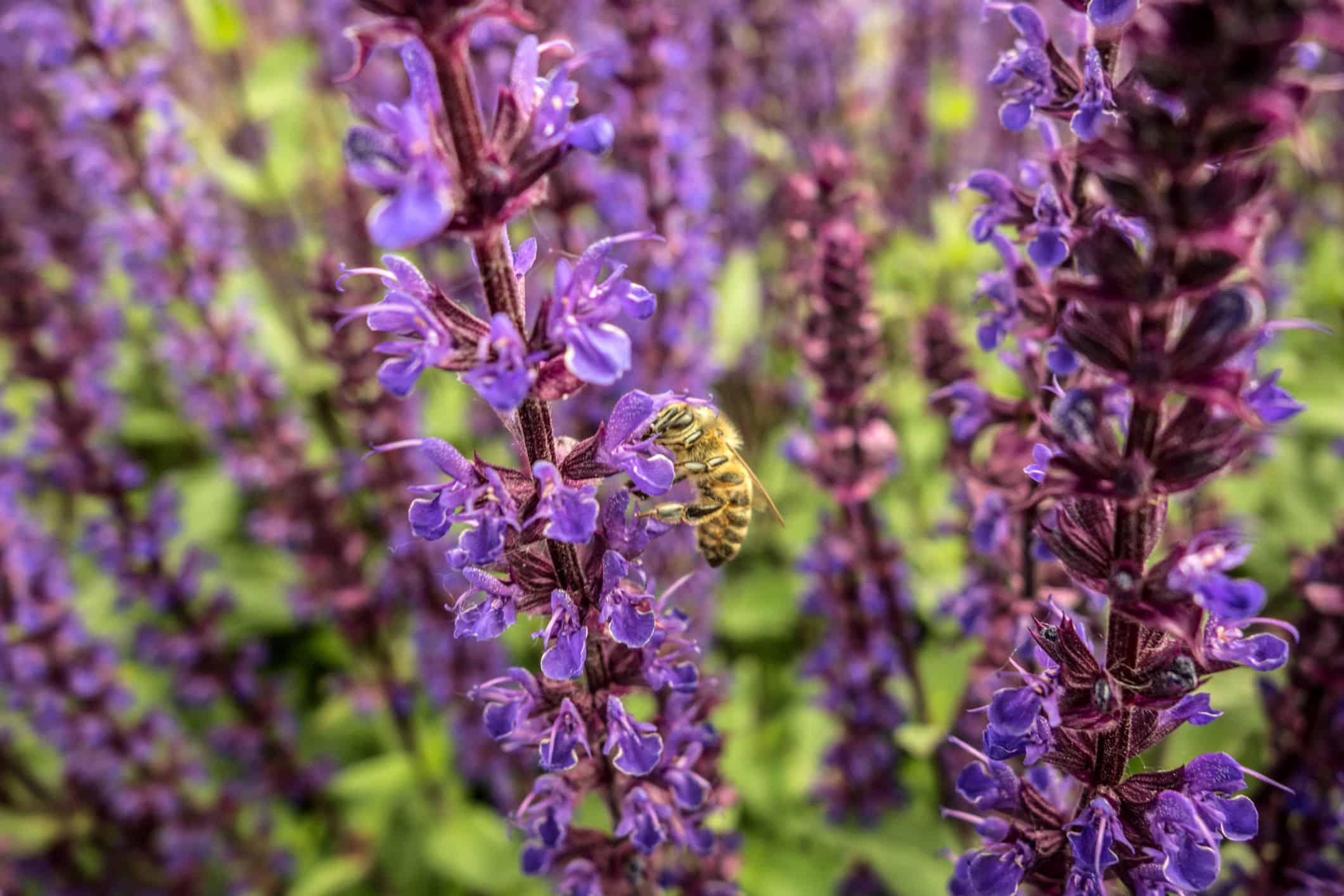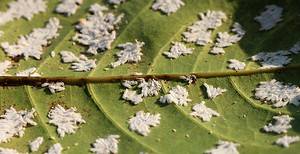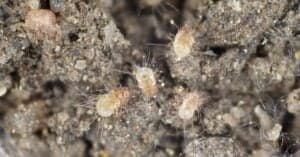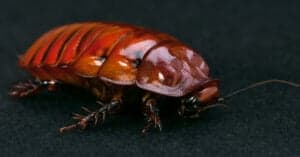Having pests around your home is certainly never a fun time. But, store-bought repellants can cost a pretty penny, on top of containing harmful chemicals and negatively impacting the environment. Because of this, many have turned to natural repellents as their first line of defense. One of these such repellents is lavender! Using lavender to repel bugs is an easy, cost-effective, and beneficial way to ward off insects, whether those be mosquitos, roaches, or any other kind of unwanted pest!
How Lavender Works to Repel Bugs

The compound linalool is what makes lavender smell so delicious to us, and so horrible to insects!
©iStock.com/Olivka888
There are actually some scientific reasons as to why lavender repels bugs so well. For starters, its signature scent comes from its essential oil content. Predominately, the compound known as linalool is viewed as repulsive to insects like mosquitos or moths. We might like the scent, but for the bugs, it is absolutely overwhelming.
In other insects, it can impact their nervous system and act as a neurotoxin. It also has antimicrobial properties- meaning it inhibits the growth of microbes. Certain insects, like roaches, are attracted to microbes. The use of lavender works to cover up that scent and thus makes a great deterrent.
You see, like many other plants, lavender has evolved over its generations of growth. This has caused it to produce certain chemicals not only to attract pollinators but also to repel pests that could potentially harm them. By making the plant uninhabitable, the lavender no longer needs to worry about getting munched on or eggs laid onto it.
Is There Evidence That Lavender Repels Bugs?
Though some of the evidence is anecdotal, there has actually been quite a bit of scientific study into the matter of bug repellent. Particularly, there have been multiple research studies specifically dedicated to studying lavender’s application as a deterrent for pests.
- This 2019 study from the NIH (National Library of Medicine) found that lavender essential oil showed a repellent rate of 80% against mosquitoes. It was also found to be effective in this way for up to eight hours!
- This 2009 study, which compared the effectiveness of the linalool in an indoor versus outdoor setting, had quite interesting results. While the rate of effectiveness was only 58% outdoors, it was a whopping 93% effective indoors!
- Lastly, in a 2002 study, some essential oils (including lavender) were used on a mouse to test repellent effectiveness. It was found that lavender was a stronger repellent than DEET, the main active ingredient in many insect repellents.
The Benefits of Lavender as a Repellent

Lavender doesn’t just help to prevent insects, it has other beneficial qualities too!
©Tatyana Soares/Shutterstock.com
Aside from the most obvious benefit of using lavender- successfully warding off bugs- there are a number of other ways that lavender stands out among your other bug-repellent options. Here’s a list of just a few of these:
- Unlike a lot of commercial repellents, lavender is all-natural! A non-toxic option, it is safe to use around pets and small children.
- Not only do bugs hate the scent that lavender gives off, but humans love it! A therapeutic and calming fragrance, actually known to help reduce stress, there’s a two-fold benefit to using this natural repellent.
- Since lavender is natural, it is biodegradable and has a small environmental footprint. Compared to chemical repellents, this is the most pollutant-free option.
- Many store-bought repellents have the risk of causing reactions, whether that be via allergens or more general skin irritation. Either way, lavender has a much lower risk of harming those who use it.
- Lavender repels bugs with a ton of versatility! Alongside mosquitos and cockroaches, lavender also works to repel moths, fleas, and flies. Talk about broad-spectrum support!
- Though some might work better than others, you have an array of options in terms of the form that your lavender comes in. You can use oils, sachets, infused waters, or even just grow the plant yourself.
Ways to Implement Using Lavender
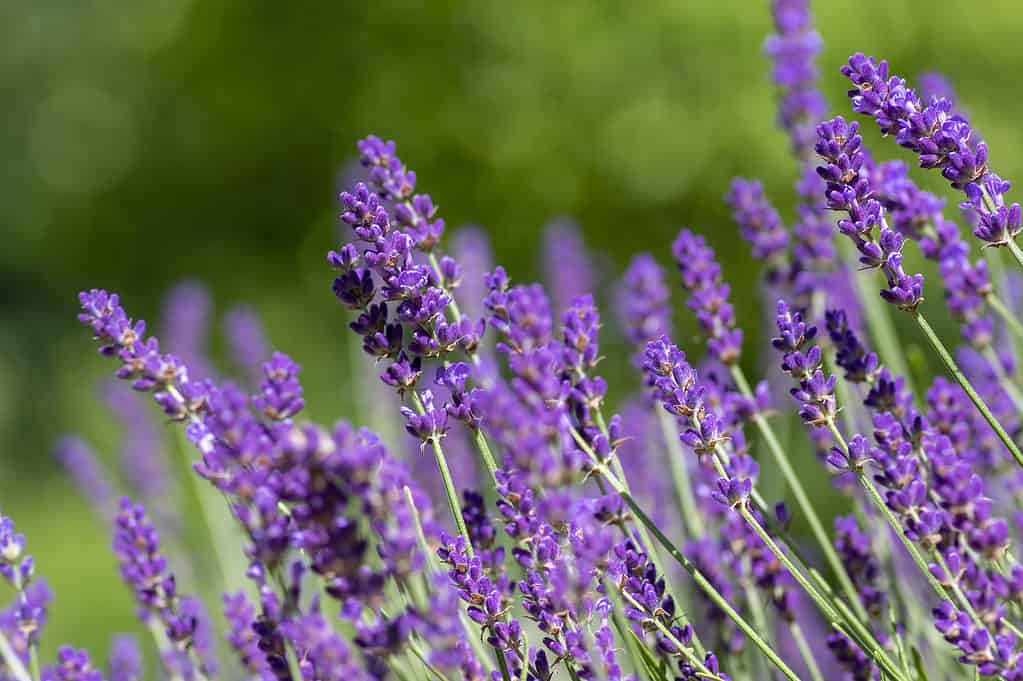
You can use lavender as a bug repellent in its plant form, its dried form, or its oil form!
©iStock.com/Iva Vagnerova
As we just mentioned, using lavender as a bug repellent can come in a number of shapes, sizes, and methods. Your options for integrating this herb into your anti-insect routine are pretty vast. Here are some effective ways to use lavender:
Fresh Lavender Plants
- You can incorporate lavender plants in your backyard and garden. No more getting bit up by mosquitos while reclining on your back porch! And, you’ll see noticeably fewer pests hanging out in your plant beds.
- If you don’t have a garden, that’s alright. You can always pot up your lavender plant and place it in areas of the home that are near possible bug entry points. Whether that’s a windowsill or balcony, this can be your new first line of defense.
- Don’t have lavender essential oil, but want to use it around your home? Try boiling some fresh lavender in a pot of water. When it cools down a bit, you can transfer it into a bottle and spray it around your home. Or, you can simply use it as an air freshener!
Lavender Essential Oil
- Though you won’t want to put pure essential oil onto your skin, you can combine it with a kind of carrier oil (like coconut oil, for instance) and apply it to your skin.
- If you don’t want the oil on your person, try combining it with water and spraying it throughout your home! Try to concentrate especially on any of your home’s entry points.
Dried Lavender
- A cute and quick way to use lavender to repel bugs is by taking small cloth bags and filling them up with dried lavender buds. Then, place them in areas of the home like drawers, pantries, and closets to ward off pests. This is especially effective if you have moth problems!
- Take dried lavender bunches and hang them up around your home. This not only helps to passively ward off bugs but also makes for quite the aesthetic decoration!
Possible Considerations to Make
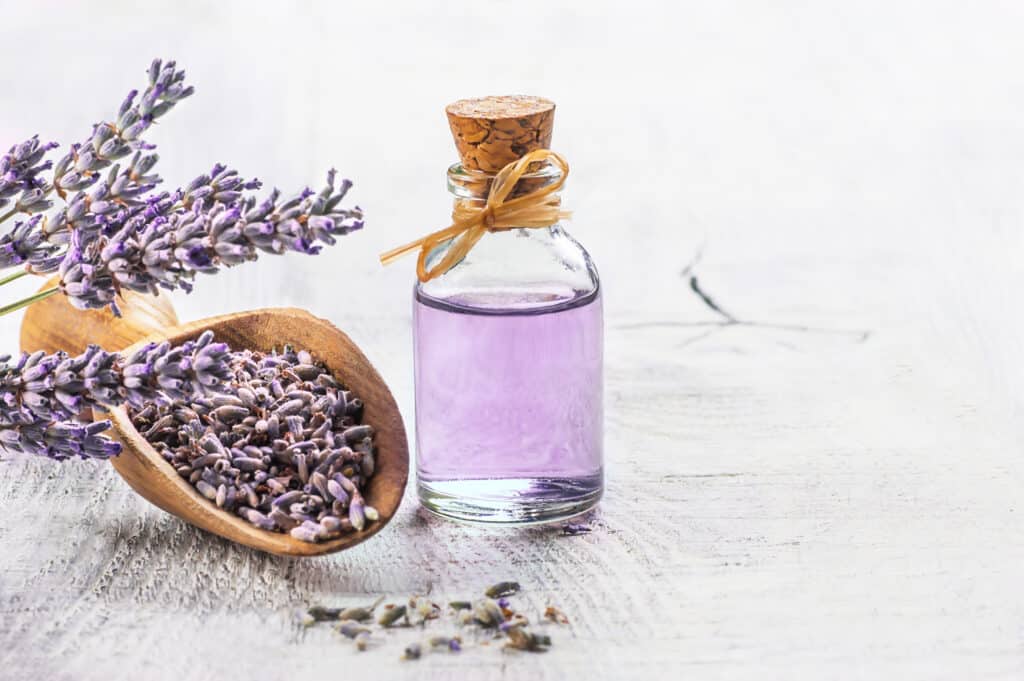
Always remember to dilute your lavender oil before using it on your skin.
©Halil ibrahim mescioglu/Shutterstock.com
Using lavender is mostly straightforward, but with all things, there is a necessary level of caution. Firstly, always be sure to dilute the oil with another kind of carrier oil before applying it to your skin. A good ratio is around 5-10 drops of oil to 30 ml of your choice in carrier oil. Then, even if it’s diluted, do a quick patch test on your arm before full application. Some allergies can creep up on you!
You should also avoid any sensitive areas on the body, like your eyes, ears, or mouth. The risk can be greater if you don’t look into purchasing a reputable brand of oil. Check the labels for terms like “therapeutic grade,” or “organic,” to find the best quality product. Don’t break the bank- but try not to invest in the cheapest option, either.
When storing your oil, make sure that it isn’t exposed to sunlight. This can degrade its quality and make it far less effective at doing its job. This sunlight exposure could be another indicator that you aren’t buying quality oil- your lavender oil should never come in a clear or plastic bottle. Look out instead for pure essential oils stored in dark-colored glass bottles.
Other Natural Bug Repellent Options

Lemon eucalyptus oil is another fantastic insect-prevention option.
©RutySoft/Shutterstock.com
Lavender definitely stands out because of all of its fantastic qualities, but nature has a variety of other natural plants/substances that can help with warding off pests. Here are a few other popular options, some that you might have lying around.
- Lemon Eucalyptus Oil: This oil has actually been recognized by the Center for Disease Control (CDC) for its ability to prevent mosquitos.
- Citronella: You might have seen this on a candle before, as it’s a common mosquito repellent.
- Peppermint Oil: Peppermint oil can be used to repel spiders and ants, and there’s even been evidence that it can ward off mice!
- Tea Tree Oil: This oil is pretty well-known for its antiseptic properties. It can repel mosquitos, ticks, and ants with ease.
- Cedarwood Oil: Helpful for moth problems, this oil can be used in closets and drawers to protect valuable clothing items.
Thank you for reading! Have some feedback for us? Contact the AZ Animals editorial team.

